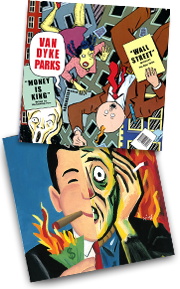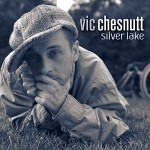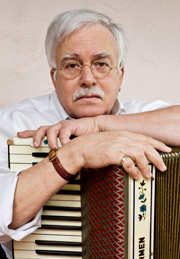The legendary Van Dyke Parks is in the middle of his new vinyl singles project, which will encompass six records with gorgeous sleeve art from some of today’s most notable artists. These are available by subscription from bananastan.com, and as Parks puts it, “Downloads from iTunes insures aid to those stuck in the digital ditch.”
These singles represent the next chapter in an amazing career in music for Parks, who wrote the lyrics for the lost-Beach Boys-masterpiece Smile which is finally scheduled for release later this year. Parks also played keyboards on many albums and songs including The Byrds’ Fifth Dimension album, Tim Buckley’s self-titled debut album, and the should-have-been-a-hit “Magic Hollow” by The Beau Brummels. His production credits include the first albums by Ry Cooder and Randy Newman, both with Lenny Waronker, and he has also done arrangements for U2, Laurie Anderson, Joanna Newsom, and the song “Bare Necessities” from the Disney movie The Jungle Book. His solo albums include Song Cycle from 1968, and the Caribbean-tinged Discover America from 1972.
The following interview was conducted by email, with answers received on 7/27/11.

Jeff Moehlis: Could you give a quick overview of your current 7″ single series? And why did you choose do these releases in the vinyl, 45rpm format?
Van Dyke Parks: I am creating objets d’art in this retro medium for those who want higher fidelity in sound repro. I like these songs for various reasons. All relate to my personal life in big ways.
JM: I’ve been enjoying listening to the four songs that have already been released as part of this series. I’m curious, what’s the story behind “Wedding in Madagascar (Faranaina)”?
VDP: As noted on bananastan.com, I offered it as a salute to my daughter’s wedding. The provenance of this wedding song is in the a capella version on the Lindley/Kaiser production “A World Out of Time”. It’s a beautiful lyric, exposing all the parental concerns of a daughter’s wedding. I wish to draw attention to that illuminating recording as well. As musicologists, Lyndley/Kaiser have brought so much to us all.
JM: The B-side of the second single, “Money Is King”, is adapted from the original song by “Growling Tiger” Neville Marcano. Did you ever meet him?

VDP: I never met Marcano, but feel his truth marching on, beyond his death, in this cautionary tale that speaks to the creed of greed. Of course, the sleeve-art by Art Spiegelman (who also designed the bananastan logo) is a complimentary indictment, railing against our material world.
JM: What can we look forward to in the rest of this series?
VDP: More pairings of visual art and music. Just in yesterday, a fine visual redux of a re-record I did of my early song “The All Golden”. The artist? Klaus Voormann (he, who provided the Beatles’ “Revolver” cover).
Other sleeve-art will come from my wife Sally (fellow Mississippian and watercolorist), for a tune about Pass Christian’s hit from Hurricane Katrina.
Charles Ray sculpted two exacting life-sized statues of me. He’s titled them “Side A/Side B”. He’ll put those statues in a museum. He’s permitting me to use photos of them on an upcoming single! Truly, his time, effort, and artistry are epic, beyond my reckoning.
Stanley Dorfman will weigh in on his return from Europe. I met Stanley through Harry Nilsson —- my friendship with him, as well as my high regard for his gravitas as an artist is a common thread that weaves through these pieces, determining my choice of these giants who want to fuse sight and sound.
Did I mention Frank Holmes, whom I’d asked 40 years ago to illustrate “Smile”… or Ed Ruscha, who defines So Cal?
JM: How did your recent tour of Australia with Kinky Friedman go?
VDP: We were received warmly, without exception. It was over four weeks of work, with a scant 5 days off. I found happiness in the adventure.
JM: Several amazing musicians that you have worked with are, sadly, no longer with us, including Tim Buckley, Phil Ochs, Keith Moon, Lowell George, Gene Clark, Harry Nilsson, and Vic Chesnutt. I was wondering if you would be so kind to give a short tribute to any of them?

VDP: Vic Chesnutt died simply because he could not afford to live in America — still wanting Universal Health Coverage. What a terrible shame! Yet, he was prescient, noting once, in a second verse: “…there is no shelter in the Arts”
JM: Do you want to set the record straight on anything about your music or career?
VDP: The record is straight, and the work is enduring, fundamentally because of the effort put into its craft. Critics have been harsh at times, others, fawning. I don’t give any of that much notice, as I agree with Oscar Wilde, who noted: “Criticism is the highest form of autobiography.”
My mother once noted how marvelous I put my retirement before my career. I am compensation in a fierce velocity.
JM: What are your plans, musical or otherwise, for the near future?
VDP: More touring, more recording, more transgenerational collaboration (in arranging/orchestrating for singer/songwriters half my age and younger).
On Nov 5 I’ll start my touring with a one-time only chamber orchestral performance of “An Invitation”, with Inara George (half of “the Bird & the Bee”, and daughter of my friend Lowell, late leader of “Little Feat”).
JM: Where are you responding from?
VDP: Venice (ours, not theirs).
p.s.
“A Poet can survive anything—-
but a misprink.”


Discussion
No comments for “Interview: Van Dyke Parks”